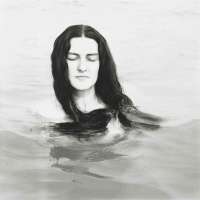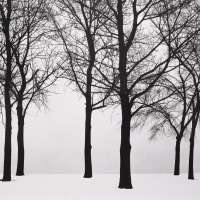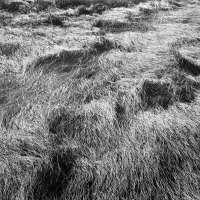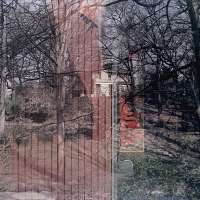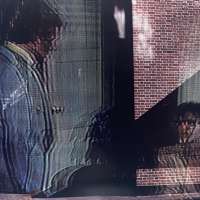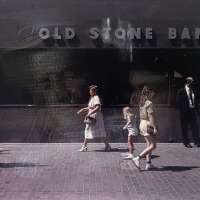
Harry Callahan
Facade (with awning), Chicago, 1949
Edition of 8
Harry Callahan
Harry Callahan Biography Harry Callahan was born in Detroit, Michigan, on October 22, 1912. Upon graduating from the public schools of the Royal Oak suburbs, Callahan would attend Michigan State College for three semesters to study engineering. In 1933, Callahan would leave school and start working for Chrysler Parts Corporation as a shipping clerk. This same year, Callahan would meet his wife, Eleanor Knapp, who eventually served as a primary subject in many of his works throughout his photography career. Though Callahan never formally studied photography in the classroom, he found great interest in it as a hobby at the age of 26 in 1938. For the next sixty years, Harry Callahan's photography style would develop into an exploratory art, using many different subjects and a series of experiments. Harry Callahan's photos experimented with many different subjects, as he once said, 'If you choose your subject selectively — intuitively — the camera can write poetry.' In 1941, Callahan met Ansel Adams at a workshop where his hobby took a professional turn. Callahan started to believe that his camera work was art and would eventually find work in the General Motors Photographic Laboratories. In 1946, he was appointed by László Moholy-Nagy to teach photography at the Institute of Design in Chicago, where he served as an influential photography mentor and teacher to aspiring photographers. Harry Callahan gained the respect of the photography community because of his open mind and willingness to experiment. His work consisted of documentary modes and formalist work, switching between black-and-white to colored images. Much of Callahan's work focused on natural landscapes, cityscapes, people, buildings, and his wife. His mastery of light and darkness from his early works is presented through double exposures and fine lines. Eleanor was constantly the subject of his scope all through his photography journey. Over about 15 years, he would photograph her repeatedly, indoors and outdoors, clothed and nude. In the late 1970s, Callahan ventured into the color film, but he wouldn't print his slides until 1978. He would later be named as the first photographer to represent the U.S. at the Venice Biennale art exhibition. After 1980, Harry Callahan's photography would become colored almost exclusively. Through his photography journey, Callahan has won and received many awards. Remarkable feats include the 1972 Guggenheim Fellowship and the Photographer and Educator Award from the Society for Photographic Education in 1976. In 1977, he was the honored photographer of France’s Rencontres Internationales de la Photographie; in 1991, he received the ICP's Master of Photography Infinity Award; And in 1997, he received the award for the National Medal of the Arts. Harry Callahan retired in 1977, at which time he was teaching at the Rhode Island School of Design. He passed away March 15, 1999, in Atlanta, GA, but left behind hundreds of thousands of negatives and around 10,000 prints, which are on display at prestigious institutions around the world. Harry Callahan's photography has been widely collected in acclaimed galleries such as the Corcoran Gallery of Art, George Eastman House, Smithsonian American Art Museum, and The High Museum of Art.

